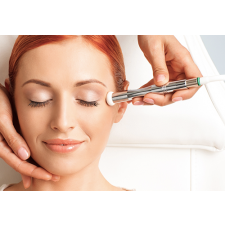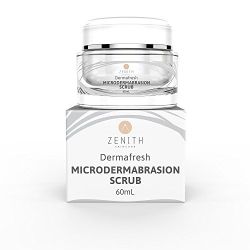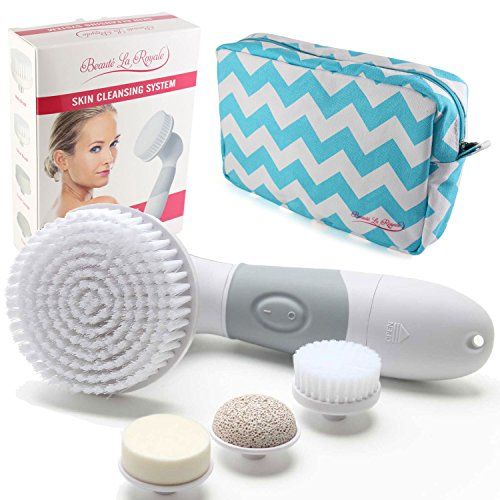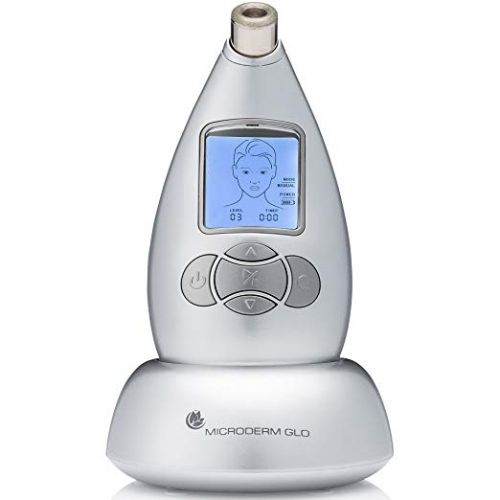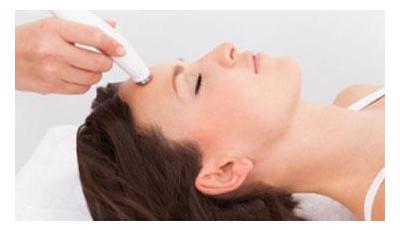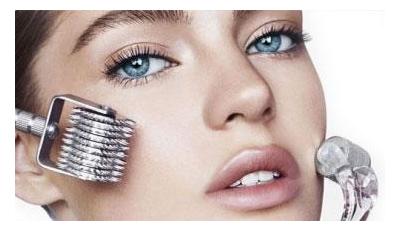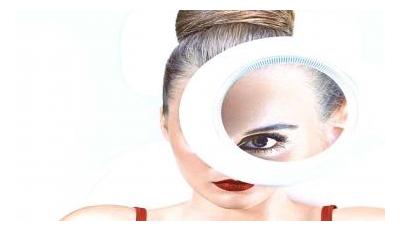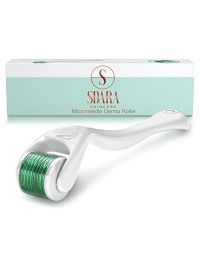Scarring and marks on the skin are unpleasant cosmetic concerns for many individuals, and those that experience these problems often feel self-conscious. Fortunately, dermatological advancements have introduced various options that can be utilized to address marks on the skin, but not all procedures are equally effective.

What is Microdermabrasion?
Microdermabrasion is considered a non-invasive treatment, and is performed by licensed dermatologists. The procedure utilizes tiny aluminum oxide crystals, or other abrasive substances, that act as exfoliators. Using a single hand piece, the abrasive crystals are blown onto the surface of the skin and are then vacuumed off.1When microdermabrasion is performed, it removes the skin’s superficial layer, which primarily consists of dead skin cells, and causes the body to start replacing the skin cells that were lost during the procedure.1
Minimal complications following microdermabrasion have been noted with the most common complaints being temporary dryness and photosensitivity following the procedure.2
Scientific studies have revealed that microdermabrasion presents a safe way to effectively reduce the appearance of different marks and scars that affect the skin. Due to the simplicity, safety, and level of patient satisfaction with microdermabrasion, this therapy is likely going to remain a popular dermatology treatment.1

Microdermabrasion Benefits
With microdermabrasion, the primary benefit is that a healthy layer of skin is revealed following the procedure. The body will also start to produce new skin cells on the upper layer of the individual’s skin. This can greatly help to reduce the appearance of dark marks and even scars on the face.3
One review paper explains that several scientific studies have proven the effectiveness of microdermabrasion in providing some of the following benefits:2,3
- Improving the effects of photoaging
- Minimizing acne scarring
- Reducing the appearance of stretch marks and fine lines
- Minimizing enlarged pores
- Decreasing hyperpigmentation
- Minimizing the appearance of scars caused by burns, cuts, and/or other injuries
- Stimulating papillary dermic thickening
A study by the Minia University Department of Dermatology in Egypt tested the effects of eight microdermabrasion sessions on 38 patients in a clinical trial. The patients were divided into four groups, depending on the condition they were treated for. Conditions included:3
- Melasma
- Striae distensae
- Photoaging
- Post acne scarring
One session of microdermabrasion was performed on the patients each week, for a period of 8 weeks. Several tests were performed before the study was started, as well as at week one, week four, and again at the end of the study.3
The scientists mentioned that mild to moderate improvements were observed in the groups that had acne scarring, as well as those with striae distensae and melasma. The group with existing photoaging symptoms also experienced improvements in their symptoms, but the results were very mild. Furthermore, improvements in collagen fiber density were also observed.3

Considerations
While microdermabrasion is generally considered a safe and effective technique, it should not be used on all skin types, and should be used cautiously in patients with Fitzpatrick skin types IV-VI, thin or sensitive skin, and in those with rosacea due to the potential risk of hyperpigmentation and/or skin irritation.2
Individuals with existing scarring on their face have numerous options that can be utilized to help reduce the appearance of these marks. Even though some lotions have been developed, they often take a significant period of time to become effective. Microdermabrasion provides a simple and effective way to see noticeable results in a short period of time.
Recommended: For at home microdermabrasion, Microderm Glo
[1] Spencer JM. 2005. “Microdermabrasion.”American Journal of Clinical Dermatology. 2005. 6(2):89-92.. https://www.ncbi.nlm.nih.gov/pubmed/15799680
[2] Spandau D, Loesch M, Somani A, Kingsley M, Travers J. 2014. “Skin resurfacing procedures: new and emerging options.” Clin Cosmet Investig Dermatol. 7: 231–241. https://www.ncbi.nlm.nih.gov/pmc/articles/PMC4155739
[3] El-Domyati M, Hosam W, Abdel-Azim E, Abdel-Wahab H, Mohamed E. 2016. “Microdermabrasion: a clinical, historic, and histopathologic study.” Journal of Cosmetic Dermatology. Dec;15(4):503-513. https://www.ncbi.nlm.nih.gov/pubmed/27357600
-
Microneedling For Acne Scars
By Dr. KarenDecember 28, 2021 -
Microneedling Video & FAQ
July 11, 2023 -
Under Eye Wrinkles
By Dr. KarenDecember 17, 2021 -
Microneedling Cost And Benefits
By Dr. AnnaDecember 17, 2021
Search the blog
Article Categories
- All Articles (95)
- Rating Charts (1)
- Beauty & Skincare (17)
- FAQ (0)
- Hair Care (9)
- Health & Wellness (12)
- Anti-Aging (4)
- Kid's Health (0)
- Makeup (2)
- Men's Health (2)
- Oral Care (3)
- Sunscreen (7)
- Skin Tools & Treatments (10)
- Supplements (26)
- Videos (0)

